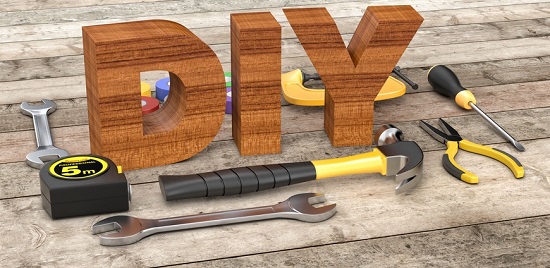I declared a citizen’s state of emergency about addictions treatment and suggested those with addictions take matters into our own hands and engage in do-it-yourself – DIY addictions recovery. At the end of this post, I will include the disclaimer that this post is for informational purposes only and to seek the care of health care professionals. The irony is that’s the very problem: help for addictions is not available, or not adequately available, for those trying to handle addictions right now. Our needs are urgent. We’ve simply got to roll up our sleeves and do this ourselves.
Here’s how I’m writing about do-it-yourself addictions recovery:
- I’m using this guide I wrote for people who have loved ones with addiction for us, as if we, people with addiction, are our own loved ones.
- I’m excerpting sections from that guide, elaborating upon them in individual blog posts, and placing them in the category DIY Addictions Recovery on this, my personal blog, annegiles.com.
- We are doing literature reviews of the research and writing reports on what the current science says about addictions and addictions treatment and posting them on my company’s blog. For example, our most recent report is on the trauma-addiction connection. I am linking from the DIY posts on this blog to those reports, to articles by the learned, and to new research to cite sources for my DIY recommendations.
- I’ll include anecdotes from my own recovery story if I think they might be useful. I’ll try to differentiate my personal story and my personal opinion from the what the evidence says.
- I’m sharing these posts on Facebook and Twitter with this hashtag: #DIYaddictionsrecovery.
- I’ll update this post as the project evolves.
- I’m keeping a table of contents here.
If I get sucked up by an alien ship (I used to say, “If I get hit by a bus…” but I started to see the winces so have bowdlerized) before I finish this, here are my fundamental do-it-yourself addictions recovery recommendations:
- Use the guide on how to get help for a loved one on yourself.
- Study this list of addictions treatment options derived from my studying addictions treatment research (.pdf opens in new tab) and start cobbling together a treatment plan for yourself based on your own individual condition and your own individual strengths.
- Use this addictions recovery self-evaluation checklist based on the aforementioned addictions treatment options as a personalized way to look at your progress and to consider other options.
- Find others. In the Blacksburg, Virginia area try these local recovery support groups and these local recovery resources. In apocalyptic times, we need to band together. The pack survives. Contrary to legend, the odds of survival are against the lone wolf. My early literature review on support groups suggests their benefits and here’s a DIY list for how to make support groups work even when it seems like they may not.
- Use Google as your recovery coach. Type any question you have into the search box and let the people of the world help you.
- By any means necessary, get dialectal behavior therapy. Here’s why. Here’s the kindest self-help, DIY, DBT book I’ve read so far. After I write about getting health care first, I’ll write about DBT. Almost all the books are too hard and too long for most DIYers. So, again, if I don’t finish: Anything you can do to become aware of what you’re feeling and thinking prior to speaking or taking action is your salvation.
Image: iStock
Last updated 9/11/16
Disclosure and disclaimer: The opinions expressed here are mine alone and do not necessarily reflect the positions of my employers, co-workers, family members or friends. This content is for informational purposes only and is not a substitute for medical or professional advice. Consult a qualified health care professional for personalized medical and professional advice.


